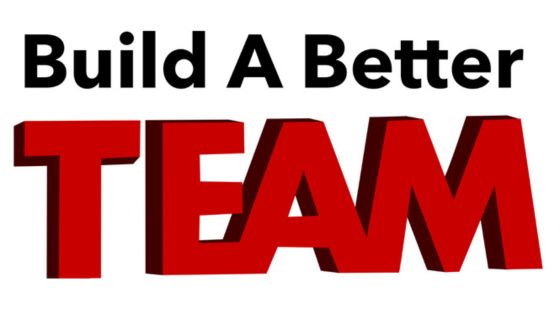
Leading a club or organization can be challenging, but a few key principles can make all the difference. In this article, Mike Fritz shares three essential strategies to help you achieve real results: defining success, following proven methods, and identifying personal growth areas. Learn how to transform your club or organization into a thriving community by applying these straightforward tips.
When you are leading a club or organization, there are three things that can radically change your results. Without these three elements, we often keep working and working with no real goal in mind.
What would success look like in your club or organization?
- More members?
- More attendees at your events?
- More engagement so you can trust people to do what they say?
- People starting new clubs and getting more people engaged?
What does success truly look like for your club or organization on campus?
Without answering these questions, it’s nearly impossible to develop a plan to accomplish what you want!
(1) Action without Strategy Keeps You Busy but Doesn’t Create Results
Whether you are new to leadership or a veteran, you’ve likely tried something before that hasn’t worked. One of the most underdeveloped principles of leadership is what success guru Tony Robbins called “success leaves clues.” There are proven strategies to lead your team, and people before you have proven the ones that work, so you don’t have to waste time figuring it out.
The first thing we should all do as leaders when seeking to accomplish anything is see who has done it successfully before and follow their strategy.
- If you are trying to grow and strengthen your SGA and recruit new members, who has done this effectively in the past?
- If you are trying to put on a successful club and organization fair, who has done this effectively in the past?
- If you are trying to throw an event and get more students to attend, who has done this effectively in the past?
- If you are trying to make your student activities team more effective and efficient, who has done this effectively in the past?
Follow those that have gone before you and did it well!
(2) What is your Metric for Success?
One of the things that a lot of leaders don’t take time to do is clearly define what success looks like for them. If I was to walk up to you at the end of this semester and ask you, “Were you successful this year?” what would you need to know to answer that? You’d have to know your definition of success. You’ll never know if you’re growing as a leader without clearly articulating what you’re seeking to accomplish and how you measure success.
One of the greatest ways to do this is to meet with your team and brainstorm some measurable goals you can set together.
- Maybe your goal is to recruit a certain number of people to your club or SGA.
- Maybe your goal is to produce an event that has a certain number of attendees.
- Maybe your goal is to run a successful service day to help human trafficking victims.
The power of setting goals as a team is that you know when you need to tweak your strategies. If you never have a goal or metric for success, you never know when you need to work on something and/or make it better. You also don’t know when to celebrate.
How do you define success for your team?
(3) What is your Area of Opportunity?
Goals aren’t just a “team endeavor.” They are also very personal. If you’ve ever done a job interview (or plan to do one in the future), you’ve heard the question, “What is your greatest weakness?” To me, calling it a weakness gives your brain the opportunity to excuse the need for growth. “I mean, I know I didn’t show up on time, but that’s just a weakness of mine.” You have been called to something far too great to own your weaknesses as though you can’t change them. I like to call them “areas of opportunity.” The reason I call them this is because of the age-old statement from science class: “An object is only as strong as its weakest link.” When you look at your “weakness” as an opportunity to grow, it gets way more exciting. When you strengthen that specific area, your “weakest link” just got a little bit stronger, and you just became a better leader.
Every single one of us has areas of opportunity that will help us become much better leaders. What is an area in your life that, if you strengthen it, you would be a much more powerful leader?
- Do you want to work on time management?
- Do you want to work on one-on-one communication?
- Do you want to work on speaking to a group?
- Do you want to work on being on time and meeting deadlines?
What is it that, if you changed it, could release you to be a more powerful leader?
This is a great exercise to take your team through to make sure you are on the same page. Write these questions on a whiteboard and start a discussion to surface what you and your club or organization truly want to accomplish this year.
For more leadership tips check out 5 Steps to Cultivating New Leaders on Campus or 3 Helpful Leadership Tips. Contact your Neon Entertainment agent today to bring one of our leadership programs to your next event!

The Hot Mic
- Empowerment Through Awareness Programs: Alcohol & Sexual Assault Programs April 16, 2025
- Speakers for Any Event | Neon Has You Covered! April 11, 2025
- Powerful Spoken Word Artists Move From Stage to Page with New Books April 11, 2025
- Interactive Escape Room Experience – Can You Escape? April 1, 2025
- DIY Eco-Origin Creatures: The Creature and Its Purpose March 27, 2025
- 12+ Summer Company Picnic Ideas for Your Corporate Outing March 21, 2025
- Game Show of The Year: 6-Time Winner Free Money Game Show Wins Big Again! March 19, 2025
- Popular Events Go Inflatable! March 12, 2025
- APCA Hershey 2025 Recap March 11, 2025
- 14 Great Spring Fling Programming March 7, 2025
- 3 Unique Themed Campus Events That Pair with Arrow Tag March 6, 2025
- NACA Live 2025 Recap March 3, 2025
- Top Opening Acts for Major Concerts February 26, 2025
- Create Strong Workplace Bonds with Build a Better Team February 20, 2025
- Custom Event Ideas: 6 Great Custom Events to Make Your Gathering Unforgettable! February 19, 2025
- Women in Comedy: Stand-Up Stars Making an Impact February 12, 2025
- Entertainment with a Message: Engaging and Impactful Performances February 5, 2025
- 3 Seasonal Game Shows to Bring to Campus this February February 4, 2025
- Comedians to Lookout for in 2025 January 29, 2025
- NACA Live 2025 Showcasing Acts January 29, 2025
Contact Us for your Leadership Programming Needs:





